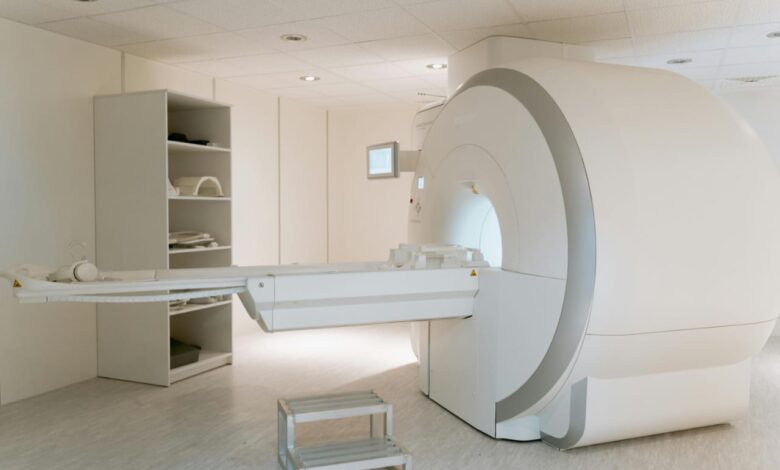Why Is Proper Medical Equipment Essential for Quality Healthcare?

Quality healthcare depends not only on skilled doctors and compassionate nurses but also on the right medical equipment. Right medical equipment changes a number of things from accurate diagnoses to effective treatments, ensuring patients receive the best chance at recovery. This piece dives into why top-notch gear matters so much, breaking it down into clear, actionable reasons that show its role in delivering stellar care.
Ensuring Accurate Diagnoses
Medical equipment plays a crucial role in diagnosis, where precision is essential. Tools like MRI machines and ultrasound machines, along with some blood checking devices can give doctors a look inside of the patient’s body. Without reliable equipment, even skilled doctors may miss critical details, leading to misdiagnoses and ineffective treatments. However, good equipment removes the fog and gives results that are clear and dependable which helps guide the steps. Maintenance assists to keep the tools trustworthy, such as a well-set machine doesn’t just produce numbers but provides data doctors can trust. Hospitals and clinics that neglect maintenance risk inaccurate readings, leading to misdiagnoses and incorrect prescriptions. Regular checks along with quick fixes are important, because they make sure every test will hold up under examination, that keeps care on safe ground. Also, staff need to learn how to use these machines, going from the easy stuff to understanding if something is wrong with them, because the machine can’t do anything even if it expensive if the people don’t know how to use them, so, learning how to use them will improve accuracy. When high-quality equipment is paired with proper training, diagnoses translate into effective treatment plans that promote healing.
Enhancing Treatment Effectiveness
Once the diagnosis lands, treatment takes the stage, and equipment plays a starring role here too. Think of surgical robots or infusion pumps—these aren’t just fancy toys; they deliver precision that can mean the difference between recovery and complications. Reliable gear lets doctors focus on strategy instead of wrestling with glitches, making every procedure smoother and more effective. Consistency matters just as much. Take dialysis machines or ventilators—patients depend on these to work flawlessly every time. Subpar equipment that sputters or fails mid-treatment throws a wrench into care, risking setbacks or worse. Quality tools keep the process steady, giving treatments the best chance to hit their mark and help patients bounce back faster. Comfort sneaks into the equation, too. Exam room chairs, for instance, might seem minor, but they support patients during long visits or tricky procedures, easing stress that can mess with outcomes. Pair that with cutting-edge therapy devices, and the setup enhances how well treatments land. It’s about creating an environment where healing gets a real boost, not a roadblock.
Improving Patient Safety
Safety is a non-negotiable in healthcare, and proper equipment stands guard here. Sterile surgical tools and well-functioning monitors catch problems before they blow up—think heart rate dips or sudden oxygen drops. When gear’s up to snuff, it acts like an extra set of eyes, letting staff step in fast and keep patients out of harm’s way. Infections lurk as a big threat, and equipment can fight that battle, too. Autoclaves and UV sanitizers zap germs on everything from scalpels to bedrails, cutting the odds of a hospital stay turning sour. Corners cut on cleaning tech or cheap, flimsy tools invite trouble—proper stuff stops that cold, shielding vulnerable folks from added risks. Breakdowns spell danger, plain and simple. A defibrillator that conks out or a monitor that misreads vitals can tip a routine case into a crisis. Investing in durable, tested equipment sidesteps those nightmares. It’s not just about avoiding lawsuits—it’s about making sure everyone walks out healthier than they came in, with trust intact.
Boosting Healthcare Efficiency
Efficiency keeps the healthcare engine humming and equipment the oil in that machine. Automated systems like electronic health record-linked devices slash time spent on paperwork, letting staff focus on patients instead of clipboards. When tools work fast and right, appointments stack up smoothly and waiting rooms don’t turn into chaos zones. Workflow gets a lift, too. Picture a lab analyzer churning out results in hours instead of days or a portable X-ray unit rolling right to the bedside. Speed like that doesn’t just clear bottlenecks—it frees up pros to tackle more cases without burning out. Good equipment streamlines the grind, making every minute count for better care. Cost savings pop up over time. Sure, top-tier gear might sting upfront, it reduces the long-term costs of frequent repairs and replacements. Fewer breakdowns mean less downtime, and that keeps the whole operation humming along. Efficiency isn’t flashy—it’s the quiet win that lets quality healthcare scale up and stick around.
Conclusion
Proper medical equipment isn’t a luxury—it’s the heartbeat of quality healthcare. It sharpens diagnoses, powers effective treatments, locks in safety, and keeps the system running smoothly. Every piece, from high-tech scanners to everyday essentials, props up a patient’s shot at a healthier life. Skimp on it, and the cracks show fast; invest wisely, and the whole setup thrives, delivering care that truly measures up.



